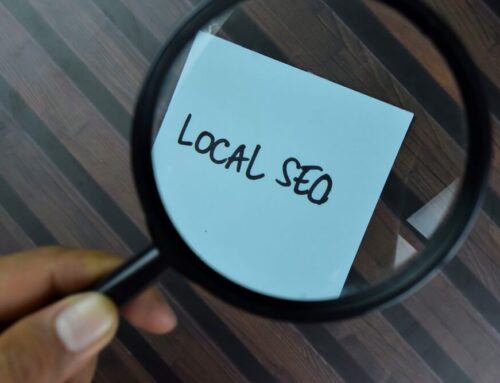Let me start by saying that there is objective and significant value to have from well-done technical and on-site SEO.
Technical SEO refers to optimizing your site and site structure for search engines to crawl, index, and understand your site quickly and efficiently.
Having poor technical SEO while the rest of your site is optimized is like driving a shiny new Lamborghini without an engine.
On-site or on-page SEO refers to optimizing your content both for search engine rankings as well as for users (you want them to see you in the SERPs and be attracted to what you may have to offer).
With that said, you should view them both as a foundation to be expanded on. Without the basics, you’ll be stuck on an endless treadmill of mediocrity.
They Do Matter, But…
My frustrations stem from the idea that they are all you need or that “advanced” technical SEO course for three easy payments of $999 is going to make a significant difference for you.
This may be the case in some specific scenarios, but for the large majority of sites, they simply will not propel you ahead of the competition or fix your more important underlying issues (like poor content quality or a weak link profile).
What They Can & Can’t Do
Viewed as a foundation, there are a number of highly important components of technical and on-site SEO.
Here are the main pieces that can make a tangible difference:
- Crawl/indexability
- Site speed
- Site structure/architecture (and strong internal linking)
- Schema (in some cases)
- Review and rating schema, pricing, sitelinks, NAP for local businesses, miscellaneous others (primarily those that can assist in displaying additional content in the SERPs)
- Canonicals
- Proper redirects
- Mobile-friendliness
- Good meta content
- Optimized H1s/H2s and body content
- Avoiding “over-optimization”
- Topics > keywords
It’s these “basics” that have the most impact – investing significantly in improving beyond this will often not make enough of a difference to warrant it as a primary focus.
Schema, for instance, is a great tool to have in your arsenal and employ strategically, but going overboard and tagging every single page with every schema element possible will simply not make a difference in your search rankings. Don’t let “industry experts” convince you otherwise.
Schema is not even a direct ranking factor that we know of (right now).
There are some great capabilities with structured markup, but you aren’t going to make your site rank out of thin air with it.
Improving your site speed from a score of 20 to 90 will not only make the user experience significantly better and reduce bounce rates, but it can act as a ranking factor as well.
I’ve had clients see almost immediate traffic boosts after bolstering site speed and have heard many similar experiences from others in the industry.
But remember this quote from Matt Cutts back in the day:
“Quality should still be the first and foremost concern [for site owners]. This change affects outliers; we estimate that fewer than 1% of queries will be impacted. If you’re the best resource, you’ll probably still come up.”
Perhaps this percentage has increased in the past 9 years, but the emphasis is clear:
Content quality and relevance win.
Clearly site speed should be optimized, but stressing over obtaining a marginally better score probably won’t be worth the time unless you’re already a company of significant size.
It won’t bring a bad piece of content to the first page or make up for having the lowest authority out of your competitors.
Should Technical SEO Be a Focus For You?
Don’t get me wrong – if you’re already a strong organic performer with a slow site, tag issues, wonky redirects, and poor site architecture/taxonomy, then you’d absolutely benefit from a technical or on-site overhaul.
If you have a wealth of fantastic content and a strong link profile (authority) yet are not seeing the results you think you should be – then you may also be in a ripe position to fix up these foundational elements and begin taking advantage of your existing pillars of content and authority.*
Also, be mindful of a potential algorithmic penalty. Assess the health of your link profile.
- Have you engaged in paid link building or other “sketchy” link building tactics?
- Are the anchor texts of your links over-optimized?
Then check your site for keyword stuffing or other over-optimization of keywords and consider consulting with an SEO expert if this is a longstanding and unsolved problem you’re facing.

Why Technical SEO & On-Site SEO Are Not Enough
Two of the top Google ranking factors today by far (that aren’t going anywhere soon) are:
- Content quality.
- Links (or authority).
Advanced schema implementation, snippet optimization, JS rendering, lightning-fast page speed, and picture ‘perfect’ site architecture are all best practice and should be used when possible, but they aren’t going to overcome a lack of quality content (along with, ideally, reasonable quantity as well) and link authority.
Ask yourself: Where will your time and effort be best spent right now?
If you’re confident in your content and you’re generating a better link profile than all of your competitors, then go all in on the above.
Until then, a balance leaning towards content and link building may be more beneficial.
Check out the top ranking pages for just about any query, and you’ll notice some pretty consistent trends – high authority and/or direct links to the ranking page among the biggest.
Only 2 of these 3 have schema implemented, and one of them has questionable schema type choices that probably aren’t helping Google understand the page.
These sites rank primarily because of their topical relevance, content quality, and authority. They have an average 87 DR according to Ahrefs. Even with page speed as a ranking factor, it doesn’t outweigh their dominant authority.
This is only one search term out of potentially trillions, but I encourage you to try it and see what kind of speed scores and schema the top sites have in comparison to their domain ratings.
Then What Is the Most Important?
If I haven’t stressed this enough already, technical SEO should be looked at as your foundation.
Without the basics, you won’t even be able to index your content in search engines, and users will never be able to find the content and resources that you’ve worked hard to create.
On-site SEO should be considered an assistant to the bulk of your content and the technical foundation you’ve created.
Focus on writing naturally over chucking your keywords all over the page.
Use best practices (keywords and variations in the title, H1, body content, etc) – but don’t force them.
What currently matters most in the world of SEO are these two things.
1. High-Quality Content & Strategy
Writing with the consistent aim to create the best piece of content on a topic ever seen on the web will do wonders for your rankings.
Using experts goes a long way; not only will crediting a health-related piece of content to an actual M.D. be a testament to legitimacy in the users’ eyes, but Google claims to understand and credit authorship from verified and credible sources more than a general content writer without experience in the field they’re writing about.
Naturally interweaving related keywords and subtopics is another solid strategy.
Remember, we want to create the best piece of content ever seen on this topic.
This is going to require covering a multitude of subtopics and not just targeting one keyword per post.
Think bigger and think holistically.
2. Site Authority
The number of unique linking domains (ULDs) to your website along with the relative quality of these links is the pinnacle of your site’s ranking potential.
Even with high-quality content, you aren’t going to outrank the big players out there without mid-to-high authority (compared to your competitors).
You may be able to target and attract long-tail keywords at lower levels of authority, and depending on your niche, you may be able to hit it big with content alone if the competition is low.
As time goes on and more people become sophisticated in SEO and content strategy, they’ll eat up the existing opportunities that may be out there, and it’ll be harder to continue without strong authority.
How do you improve your authority?
A large array of options are at your disposal, but link building through PR, content marketing, outreach, guest posting, and more are some of your most notable choices.
Want Strong, Long-Term Organic Growth? You’re Going to Need Good Content & Links
Perhaps in 5 to 10 years links will truly matter less and Google will have placed a significant emphasis on schema and other technical matters, making them powerful, game-changing ranking factors.
Until then, I’d recommend that you do things in this order:
- Ensure a strong technical foundation for crawling and indexing.
- Research and create amazing content.
- Build or obtain links back to your site and your awesome content.
- Continually reevaluate/iterate on-site opportunities and improvements.
- Revisit more advanced technical SEO opportunities and improvements.
SOURCE: Search Engine Journal










